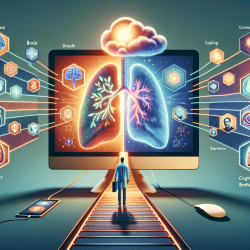Empowering Change: Harnessing University Potential for Migrant Health and Well-being
Migration is a powerful global phenomenon, influencing economies and societies worldwide. With over 258 million international migrants as of 2017, the need to address the health and human rights of these individuals is more pressing than ever. The Manila Declaration on Migration and Health offers a comprehensive framework for universities to lead in this effort, leveraging their unique position as centers of learning, research, and community engagement.
The Role of Universities in Migrant Health
The Manila Declaration, a product of the Association of Pacific Rim Universities (APRU) Global Health Program, emphasizes the pivotal role universities can play in promoting migrant health and well-being. The declaration highlights several key areas where universities can make a significant impact:
- Safe and Supportive Environments: Universities must ensure their campuses are welcoming and empowering for all migrants and their families. This includes providing access to health services, legal support, and educational opportunities.
- Research and Data Generation: Universities should capitalize on their research expertise to gather data on migrant experiences, focusing on issues such as gender and mental health. This research must be communicated effectively to policymakers to inform evidence-based decisions.
- Educational Initiatives: Incorporating migration topics into curricula can sensitize students and staff to the challenges faced by migrants. This includes developing new courses and training programs that promote cultural competency and inclusivity.
Actionable Steps for Practitioners
For practitioners in the field of speech-language pathology and other health-related disciplines, the Manila Declaration offers several actionable steps to enhance their practice and advocacy efforts:
- Engage in Interdisciplinary Research: Collaborate with colleagues across disciplines to conduct holistic research on migrant health issues. This can lead to innovative solutions and improved outcomes for migrant populations.
- Advocate for Policy Change: Use research findings to advocate for policies that protect and promote migrant health and rights. Engage with policymakers to ensure that the voices of migrants are heard and considered in decision-making processes.
- Promote Awareness and Sensitivity: Partner with community organizations and media to raise awareness about the challenges faced by migrants. Utilize creative resources such as digital storytelling to engage diverse audiences.
Conclusion: A Call to Action
The Manila Declaration serves as a powerful call to action for universities and practitioners alike. By embracing their roles as advocates and educators, universities can drive meaningful change in the lives of migrants, ensuring their health and rights are protected. Practitioners are encouraged to engage with the declaration's principles, fostering a collaborative effort to create inclusive and supportive environments for all.
To read the original research paper, please follow this link: The Manila Declaration on Migration and Health: commentary of the Association of Pacific Rim Universities Global Health Program.










